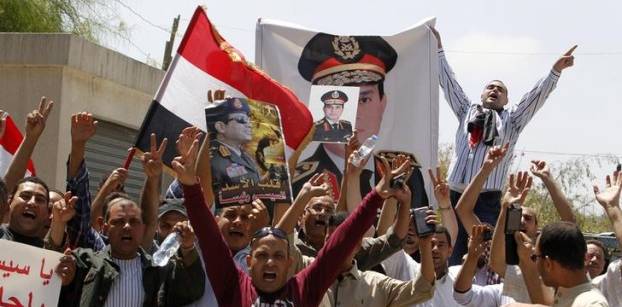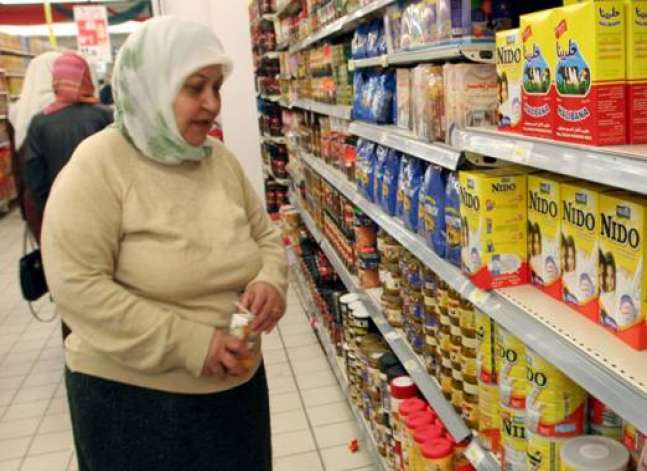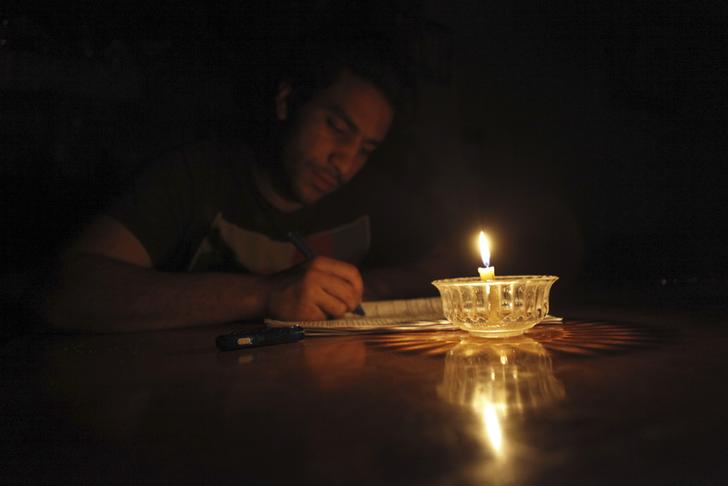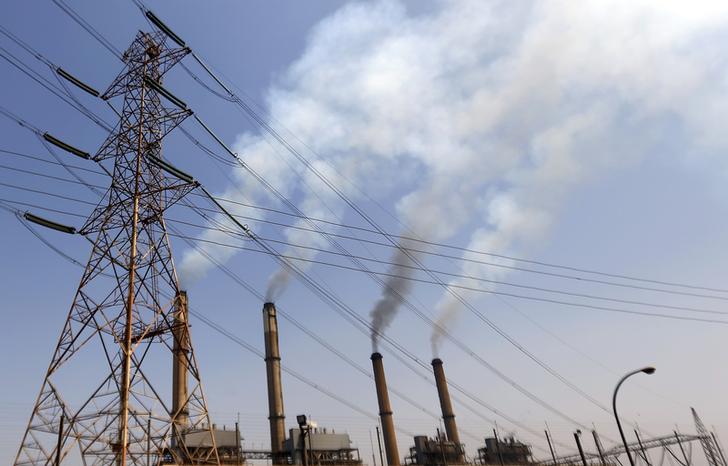Latest NEWS
- Aswat Masriya, the last word
- Roundup of Egypt's press headlines on March 15, 2017
- Roundup of Egypt's press headlines on March 14, 2017
- Former Egyptian President Hosni Mubarak to be released: lawyer
- Roundup of Egypt's press headlines on March 13, 2017
- Egypt's capital set to grow by half a million in 2017
- Egypt's wheat reserves to double with start of harvest -supply min
- Roundup of Egypt's press headlines on March 12, 2017
What 3 Egyptian women have to say about Sisi 2 years into his presidential term
Lobna al-Ridi, an Egyptian woman, says Sisi has lost his popularity. Egyptian expatriates in Lebanon shout slogans in support of then-presidential candidate Abdel Fattah al-Sisi in front of the Egyptian embassy in Beirut, May 15, 2014. REUTERS/Sharif Karim
CAIRO, Jun 10 (Aswat Masriya) – Prior to his inauguration as president in June 2014, Abdel Fattah al-Sisi repeatedly vowed that Egypt will be “as big as the world," heralding an improvement in Egyptians’ living conditions.
Aswat Masriya asked three Egyptian women of different socioeconomic strata about their views on how the country’s economy has evolved two years into Sisi’s four-year presidential term.
Ghalia Mahmoud: "I tell people that it's not his fault"
Ghalia Mahmoud, an Egyptian woman in her sixties, says she felt tremendously happy when Sisi became president. “Very happy… He did everything good for us. It is enough that food rations are now for free, bread is for free. All poor people wanted him and were happy … and they are still happy.”
After Sisi came to office, Egypt’s Ministry of Supplies began implementing a new points-based system for food subsidies, giving citizens a choice between a number of commodities and allowing them to trade off one commodity for another.
Mahmoud is a mother of six children and she lives in a poor village in the province of Assiut. She became the sole provider for her family after her husband, once a street vendor, was diagnosed with a herniated disc.
Mahmoud occasionally works as a maid in households. “Sometimes, the situation is desperate, so I go work for people to get things going.”
What matters to her the most is stability and security. “It is enough that he made the country free of thieves. No theft, no terror; what else can we ask for?”
But the stability that Mahmoud says she is witnessing does not stop her from expressing concerns about the recent price increases. “Prices have hiked. I hope someone tells Sisi because we don’t want another revolution.”
Mahmoud also works as a street vendor. She often hears people’s murmurs about rising prices and their discontent with the government. “I defend him, and I tell people that it’s not his fault."
Besides the money she makes as a maid and as a street vendor, Mahmoud receives a social security benefit allocated by the state for her special needs son.
“The situation is very difficult [for me]. But I applied for Takafol and Karama. My name has not been listed yet.”
The Ministry of Social Security started to implement Takafol and Karama, a conditional cash transfer programme, in June 2015 by offering monthly benefits to the elderly and citizens with special needs, as well as poor families with children who are enrolled in schools.
Lobna al-Ridi: A high price was paid for stability
Unlike Ghalia Mahmoud, the street vendor and domestic maid, Lobna al-Ridi, a translator, feels frustrated.
“I had high hopes in him, and he enjoyed a consensus that no one could dream of," she said.
But he has now lost his popularity, she added.
“Those who supported Sisi were the common people. But now the common people are suffering from rising prices, and no one cares about them."
She believes that the situation for Egyptian youth has worsened after Sisi's election.
“The youth who led two revolutions and brought him to power are now either in prisons, marginalised, or frustrated and want to immigrate and leave the country.”
Ridi says that there are certain segments who benefited from Sisi’s rule in the past two years: “Businessmen, for whom facilitation is made, as well as [members of] the police, the judiciary and the military, whose are offered salary raises every day.”
She does not deny that the country is largely stable under Sisi compared with the transitional phase that followed the 2011 Uprising, which toppled long-serving president Hosni Mubarak. Ridi also thinks the country is more stable under Sisi than it was under Mohamed Morsi, who hails from the Muslim Brotherhood group. In July 2013, Sisi was still the country’s military chief when he led a military ouster of Mursi following mass protests against Mursi’s rule.
“Although security has improved and there is stability, which is supposed to be normal [anyway], this stability has been stained" by a firm "security grip"
“The price paid for stability was a wider crackdown on freedoms and suppression of people.”
Ridi did not vote for Sisi in 2014. Instead, she voted for his only contender Hamdin Sabahi. She justified her choice saying that she wanted to empower voices like Hamdin's in order for a strong opposition to materialize in the future. “But this did not happen."
The current atmosphere brings back to her memories of the rule of former president Anwar al-Sadat, when supporters "applauded everything" he said or did.
Ridi feels no significant change two years after Sisi came to office, saying that the national projects he inaugurated are still "intangible” for now; she guesses that the outcome might be felt in three to five years.
Naemat Farahat: "Freedom is a luxury now"
Naemat Farahat says she has felt a great improvement in her life since Sisi's election.
Farahat, who describes her decision to elect Sisi has “100 per cent right,” lives in the upscale neighbourhood of Mohandeseen in Giza and is married to a banker.
“It is enough that we have electricity available all the time, and no power cuts like before."
Egypt has been facing an energy crisis for years, with power outages surging in the increasingly hot summers. Power cuts became particularly frequent under Mursi’s rule and during Sisi’s first months in office, which coincided with summer’s heavy demand on electricity.
Farahat gives Sisi credit for the "good and wide road network", citing the road to the al-Tagamoa al-Khames area (Fifth Settlement) on the outskirts of Cairo, and "other areas where roads are currently being built."
She recounted that people working with can now have basic goods and commodities using ration cards. “No more queues for bread. Isn’t this an improvement?”
She also feels progress with regards to the security situation. “Before, for a year and half, I feared walking on the street by myself.”
Farahat is against linking security and stability with a crackdown on freedoms. “Freedom is a luxury now. I can’t be drowning, unable to breath, and asking for freedom. I have to rise above the surface of the water first before thinking about freedom.”
Despite the improvement she feels, the 40-year-old still believes that Egypt is suffering an economic crisis. “Frankly, the upper classes, like us, have not been affected as much … It is the common people who suffer and are not content with the rising prices.”
“Simply, revenues are not enough to meet expenditures, and we are having a big problem with tourism and the declining revenues from the Suez Canal,” she added.
Farahat also believes that all the governments that have been formed since 2011 Uprising "failed" to protect Egypt from economic crises. “The only government that was able to do this was Ahmed Nazif's,” which was in office when the uprising erupted on January 25, 2011.
Farahat does not expect great economic improvement in the coming two years “But we have to save the economy so as not to drown.”

















